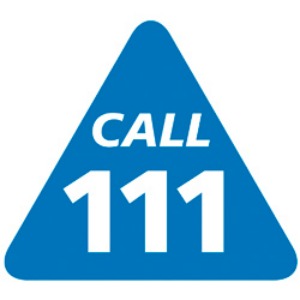A coroner has called for a change to NHS 111’s telephone triage service following an inquest into the death of a 17-year-old boy.
Alexander Davidson, 17, died in February 2018 of an infected and necrotic pancreatic pseudocyst. He had four telephone triage assessments by NHS 111, two admissions to a local A&E, and made contact with his GP on three occasions.
The coroner, Laurinda Graham, said that it was ‘unlikely’ that different treatment would have prevented Mr Davidson from dying, but there was a possibility that Mr Davidson may have had problems understanding some of the ‘medical terminology’ in the questions he was asked over the phone and may have miscommunicated his symptoms.
The report also said that the NHS Pathways algorithm for triaging vomiting and diarrhoea symptoms is unclear as patients may fail to understand what is meant by ‘soil’ or ‘coffee ground’ vomit – and such a distinction can be vital.
Mr Graham called on NHS 111 to think about altering the wording of the questions depending on the age and condition of the patient.
The helpline had a troubled beginning when it was introduced in 2013, with many GPs criticising its use of non-medically trained call handlers to ask questions.
In recent years, NHS England has introduced greater clinician presence within the call centres, but the majority of patients still only speak to the non-medically trained call handlers who use NHS 111 Pathways to triage patients.
The coroner’s report, first reported in the HSJ, read: ‘The NHS 111 telephone triage service uses the NHS Pathways computer system to triage patients via pre-determined question/answer based algorithms. The pre-determined questions are the same whether the caller is an adult or a child.
‘Alex struggled to comprehend some of the medical terminology used during these calls. Call handlers are not permitted to deviate from the prescribed wording of the pre-determined questions, and this created confusion and inconsistency in the patient’s answers.’
Ms Graham concluded: ‘Consideration should be given to how this important diagnostic feature can be explored during telephone triage, especially when the patient is young and/or vulnerable.’
There was also an issue with the uploading of the NHS 111 triage report at Mr Davidson’s GP surgery.
The report said: ‘There was a delay of seven days in the GP surgery uploading the 111 triage document to Alex’s patient record. This prevented Alex’s GP from reviewing the triage note prior to his consultation with the patient. There is no guidance as to expected practise with regards to the timely updating of electronic patient records, and as a result delays are all too frequent.’
Last month, a Pulse survey found GPs in England receive more than a quarter of a million inappropriate referrals from NHS 111 every month. This amounts to an average of 6.2 inappropriate referrals a month per GP. The BMA said the efficacy of the service needs to be questioned and scrutinised.
Pulse October survey
Take our July 2025 survey to potentially win £1.000 worth of tokens














